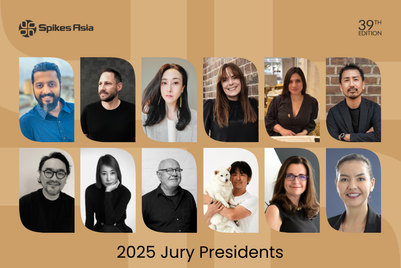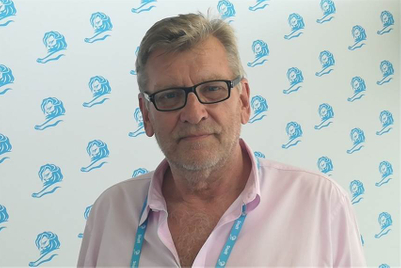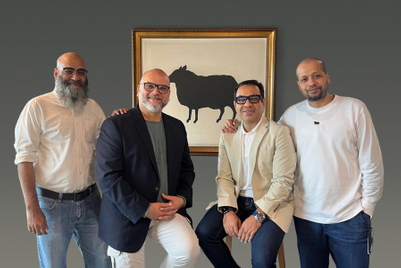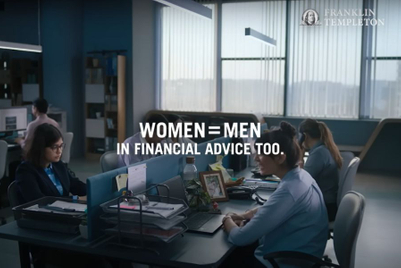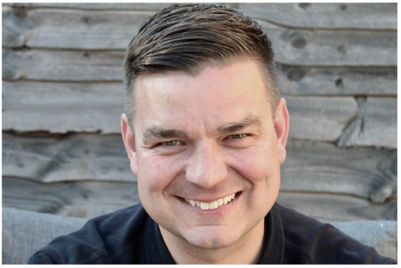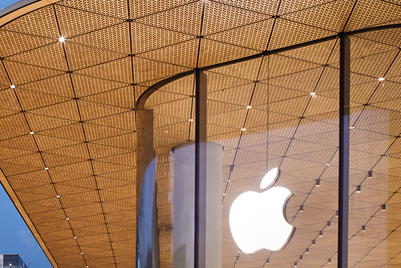.jpg&h=570&w=855&q=100&v=20250320&c=1)
Come June and he’s forever running around the Palais during the Cannes Festival. During the rest of the year, he’s visiting markets across the world, and the ad frat in each. On one such trip to Dubai, Terry Savage, chairman, Lions Festivals, tells Gokul Krishnamoorthy why there could be room for Lions Festivals to expand beyond its three regional festivals Eurobest, Dubai Lynx and Spikes Asia, and the flagship – the Cannes Lions.
What is the kind of feedback you’re getting across the world, and in particular this part of the world?
It’s been overwhelmingly positive. The industry is at a time in history, when everything is moving so rapidly and change is so constant, that people need forums to in fact recalibrate what’s happening in the industry and also in terms of reminding themselves that no matter what is happening, be it in terms of data, tech or innovation, creativity is at the core of our business – let’s not lose sight of that in the face of so many other changes that are happening.
So, our mission, more than anything else, is to ensure that creativity stays central to the business of advertising and brand communications.
On another tangent, we’ve had Heineken declared ‘Marketer of the year’ at Cannes Lions for a second time (the second time a marketer has won it twice). The thinking seems to be to award the most creative client of the time, than to award more and more clients. Is that right?
The important thing in our selecting the winner for that award, is to make that judgment based on great creativity. Of course, we want that to be as broad as possible, but if you’ve got a client that has clearly demonstrated a commitment to creativity that has resulted in a significant number of awards being won, that is higher than any other marketer that hasn’t won it previously, then we will award it twice. It is a fact that it is a number of years since Heineken won the award previously, and I think the work they’ve done since that time has set new benchmarks, and is deserving.
So whilst we’d like to be as broad as possible, we’re not going to penalise a company that has demonstrated great creativity because they have won the award before, by not awarding them.
The question on culturally sensitive work (region-specific) not being awarded at global festivals – has this been brought up to you again recently?
It hasn’t because I really do believe that irrespective of cultural sensitivities or even language, great ideas shine through.
Especially in today’s environment, when people have a piece of work they consider very strong, it invariably gets entered across a whole range of categories. So when people say the jury didn’t pick up the cultural sensitivity, it wasn’t just one jury – it’s a range of juries that didn’t pick it up. That suggests to me, that there was probably work that was better, that was awarded in place of that culturally nuanced piece of work.
The juries get it right pretty much most of the time. There’s always a chance that something will slip through. But the best work generally gets awarded.
Brazil was conspicuously absent at this year’s festival, thanks to the FIFA World Cup. How did that affect the overall numbers?
Our numbers were flat. We knew Brazil would be down. They love Cannes Lions, but if there’s one thing they love more than Cannes Lions, it’s soccer. So we knew the numbers would be down, and we fully expect them to bounce back. In fact, we were quite pleased that the numbers were flat in 2014. Whilst Brazil was always going to be impacted, it’s not just Brazil. Other South American countries were impacted too. There were marketers that were probably kept away because of the World Cup as well.
You must be receiving feedback from creatives on the focus on data and tech at Cannes. Has there been some form of resistance, and is there greater acceptance now?
It’s interesting. There’s never been specific resistance to information that will give creatives a better insight on how to engage with the consumer. There is openness, and an understanding of that. If you get pushback, it’s more about seeing data as something that can supplant or get around creativity – something that in fact damages the excellence of creativity.
We’ve reached a point where people at a creative level, marketing level… pretty much across the industry, understand that it isn’t as much a threat; that it is an enhancer to our business.
You’ve got to embrace the real world we live in. And the real world is, we have technology now that can give real time data that is very meaningful and productive in terms of enabling a better creative execution.
We have more festivals today than ever before. Cannes does enjoy its position of eminence, but has the emergence of several festivals affected participation in any way?
As market leaders in all of the events that we do, we aren’t seeing an effect that we can particularly measure. The reason you want to participate, in awards and even in festivals, has got to be based on real business decisions. Awards are important for benchmarking levels of excellence, but you want to be actually able to use the awards you win in terms of gaining business. Awards that have a reputation are the ones that have a real business case. In terms of learning, again, the scale of the festival is important. You are certainly going to learn from the seminar holders and the speakers, and the work – the inspiration that comes from the work. But you need people in sufficient numbers there, because you’re also going to learn from each other. People don’t evaluate as strongly as they should the power of networking, meeting with people that want to talk about work, talk about the business. So whilst other awards can come and go, the reality is the industry can’t engage with every one of them. They’re going to select shows that they think are premium, of more value, are important. We luckily are in a position to have those shows at both the global and regional levels.
Some very good introductions at Dubai Lynx this year, including a day dedicated to Arabic. You always look back and say, ‘Could it have come earlier’…
Yes, but I also think you have to allow for evolution. The job we had for Dubai Lynx was to bed it down in the region, as a very, very strong and premium event, which I think we have succeeded in doing. Once you’ve done that, you come up with ideas and innovations that enable you to delve further into the market. Hindsight is a wonderful thing. If we’d introduced it two years ago, it would have probably been a benefit. But let’s remember that it’s an event that is held once a year. If you hold something once a month, you can change things around very quickly.
The important thing is we have it now. It gives the opportunity for people who aren’t necessarily comfortable in English to listen and be part of those conversations, and that is an important development.
We’ve seen the introduction of a School competition now at Lynx, building on University competitions and so on. How have Young Marketer Lions and the rest at Cannes evolved?
They are a really important element of the festivals, of not just the Lions Festivals but also here. One of the important things that the industry has to do, is develop talent. Talent is such a key element of our business. The younger people that are coming through are very much in tune with what is happening in our world. They’re digital natives, they speak and understand the language. But they also need training; they also need inspiration.
These academies and competitions give them the opportunity to engage with serious thought leadership on one hand, and obviously get peer recognition by participating in and winning these awards. To me, youth is an incredibly important development area.
In fact, one of the reasons that drove us to go into regional events, is that we understand that Cannes is an expensive destination. So you’re not always going to get young people sent there. But if we can put the same kind of premium programmes in places like Dubai and Singapore, where it is easier and cheaper to send young people, it does provide the platform for the learning and inspiration that is so important today.
On the regional festivals: you have the Eurobest, Lynx and Spikes. Do you see scope to expand further?
There is always scope to expand if there is a reason to expand. Our position has been that we don’t just want to plant a lot of flags in the sand to grow for growth’s sake. In Asia, we thought there was a significant opportunity, and we were proven right. With Lynx, there was clearly significant opportunity, and we were proven right again. If we saw an opportunity that made us sense that a market wanted to be engaged, we will certainly look at it. But we’re not just going to go on a mad expansion trial just to say that we’re in every continent on the planet.
Obviously, we get approached a lot, for participating in or getting involved in other events. Frankly, we say no to most of them. There are some markets, which we do think are very, very interesting – if the right opportunity came along, we would probably participate in them.
Your position on proactive work is well established. Is there a greater sense of acceptance today, that there is a need for proactive work that can open minds?
There has always been a sense of acceptance for proactive ideas that are taken to brands, and accepted and bought by brands. The important differentiation is, whilst you can be proactive in terms of a new idea, it still must have run, it still must have a media schedule attached and it must have approval from the client. A scam is scam – we have a clear definition of what constitutes a legitimate entry. Scam shouldn’t be tolerated, and if we see scam, we will remove it.
Increasingly, marketers are understanding – more and more and more – the value of creativity. And they are willing to allocate part of their budgets to new concepts and new ideas. They may test ahead of wider launches, to see if they get the response that they’re looking for. In that context, the world has changed. Marketers are being braver and bolder in terms of looking for alternatives. That braveness and boldness is perfectly legitimate.
Cannes Lions is a festival of creativity. But you have clients there, you have all aspects of agencies. Could it therefore speak about the business issues as well? There’s a view that it doesn’t. Would you agree?
I do think we touch on business issues. But after all, we are the festival of creativity. Our focus should always be on creativity.
We’ve got marketers on stage, we’ve got media owners on stage, we’ve got creative people on stage, we even have personality panels. So you will find touch points and references certainly, for everything across all of the seminars. But I’m not sure if it’s our role, to actually deep dive into the business rationale of the industry as such.
We will never forsake the fundamental core value of the business, which is creativity.
Coming back to creativity in the region… How would you view it? And how are agencies evolving in your view?
This region is quite sophisticated in its approach.
In the last eight years, we have seen this region emerge from winning virtually nothing at festivals like Cannes, to being significant contributors. And I’m not just talking about Dubai; I’m talking Lebanon, I’m talking Tunisia. I think we’re seeing a broad spread of very strong creativity that comes from the region.
There is enough evidence to suggest today that great creativity gives you a better return on investment. My view is that this trend of awareness will continue, and clients will continue to embrace and want creativity. In that sense, this market is no different from any other market.
All agencies are in the business to help sell more products for clients. That is the beginning of the story, and the end of the story. In that sense, awards aren’t about a shiny piece of metal sitting on a table. It’s about proof that you have got the skill and the level of excellence to be able to produce work that is driving your client’s business to another level.
How well represented at Cannes are clients from this region?
They are reasonably well represented. The global trend is that the more you win, the more you want to go and participate in events like Cannes.
(This article first appeared in Campaign Middle East)


.jpg&h=334&w=500&q=100&v=20250320&c=1)
.jpg&h=334&w=500&q=100&v=20250320&c=1)


.jpg&h=334&w=500&q=100&v=20250320&c=1)

.jpg&h=334&w=500&q=100&v=20250320&c=1)


.jpg&h=334&w=500&q=100&v=20250320&c=1)

.jpg&h=268&w=401&q=100&v=20250320&c=1)
